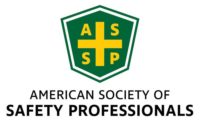ASSP Certification and Accreditation Institute debuts

The new ASSP Certification and Accreditation Institute LLC, an independent entity of the American Society of Safety Professionals (ASSP), has begun working with companies to certify their workplace safety and health processes to established standards that demonstrate a commitment to quality. The institute’s certification mark, which confirms adherence to specific standards, reflects a company’s investment in occupational safety and health management and is expected to provide a competitive advantage in the industry.
The creation of the institute further drives the evolution of workplace safety and health worldwide. The fee-based program certifies an applying organization based on recognized voluntary national and international consensus standards. The ASSP Board of Directors approved the initiative in April and the institute launched its web page in August. The institute is partnering with an accredited third-party registrar, Orion Registrar Inc., to carry out the audits, verify the results of the assessment and issue a certification mark when all requirements are met.
“As the market for workplace safety and health systems becomes more global, certifications become more valuable and are more frequently pursued,” said ASSP President Rixio Medina, CSP, CPP. “ASSP has led the evolution of workplace safety for more than 100 years, so it makes sense to leverage our experience and create a seal of approval that identifies a strong commitment to safety and health.”
ASSP brings extensive expertise in standards development to companies seeking to certify their occupational safety and health processes. As secretariat for multiple national and global standards including ISO 31000 Risk Management Guidelines and ISO 45001 Occupational Health and Safety Management Systems, ASSP has helped develop consensus standards that incorporate industry best practices.
ISO certification is a selling point across all industries and is essential for companies conducting business globally. According to a survey by the Independent Association of Accredited Registrars, 86 percent of companies that certify with a reputable accreditation organization realize a positive return on investment.
“The institute’s certification mark demonstrates an environment built around quality-driven standards that are geared to reduce workplace injuries, illnesses and fatalities,” Medina said. “Investors and customers gain confidence in knowing that.”
One of many certifications provided by the institute is on the new ISO 45001 standard published in March. The standard offers a framework that enables companies to increase employee safety, reduce workplace risks and improve business outcomes. The practical solutions for worker safety in ISO 45001 can be used within global supply chains in all industries, applying to contractors and subcontractors in every country.
In an ASSP survey of more than 500 companies, half responded they are “very interested” in pursuing certification for their implementation of ISO 45001. With ASSP’s name behind the ISO 45001 certification, 80 percent of respondents said they would consider applying for it.
For more information, visit the ASSP Certification and Accreditation Institute web page or contact ASSP Standards Development Manager Ovidiu Munteanu at OMunteanu@assp.org.
Looking for a reprint of this article?
From high-res PDFs to custom plaques, order your copy today!




